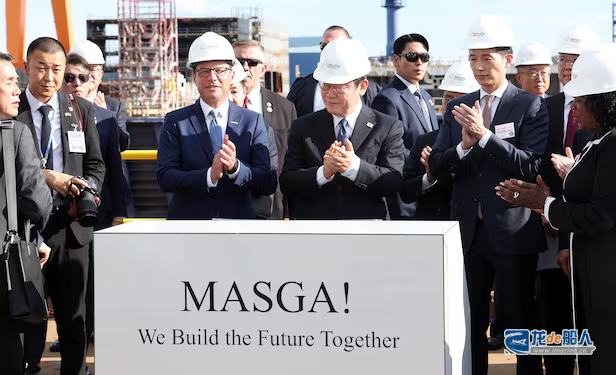Although the South Korea-U.S. shipbuilding cooperation project, “Make American Shipbuilding Great Again” (MASGA), has officially launched, opposition from protectionist vested interest groups such as the U.S. shipbuilding and shipping industry unions may hinder the cooperation project.

Recently, the American Shipbuilding Technicians Union (MTD) issued a statement titled “The Jones Act Under Attack Again,” declaring: “For more than a century, the Jones Act has protected the American shipbuilding industry and created high-quality jobs for the people. However, the new bill proposed by Democratic Congressman Ad Case and Republican Congressman James Moylan threatens the livelihoods of thousands of people.”
A new bill introduced by two senators aims to permit ships built in allied nations to participate in U.S. coastal shipping, whereas the Jones Act mandates that all U.S. coastal shipping ships must be constructed within the U.S..
The union warned, “The new bill will allow ships built by foreign allies, including South Korea, to enter the U.S. coastal trade sector. For American workers, this is no different from a pink slip.” It also emphasized, “The Jones Act is not just an economic policy, but a lifeline for national security. This misguided bill (the new bill) will devastate entire communities, and once jobs are lost, they can never be recovered.”
Previously, the Marine Engineers’ Beneficial Association (M.E.B.A.), has submitted a letter titled Don’t Let Jobs at U.S. Shipyards Sink to the U.S. Congress, officially launching a public opinion campaign to block the passage of the new bill.
The American Federation of Labor and Congress of Industrial Organizations (AFL-CIO), the largest labor organization in the U.S., also issued an official statement declaring: “Whether it is a new ship or a merchant ship, it must be built domestically by American workers to ensure national security and strategic supply chains.”
Furthermore, some lawmakers and others who support existing protectionist legislation, such as the Byrnes-Tollefson Act, which prohibits the overseas construction of U.S. warships, have raised objections, arguing that “allowing U.S. warships to be built in overseas shipyards, even for allies, will weaken national security and the defense industrial base.”
In view of this, it may not be easy to allow large-scale overseas purchases of U.S. warships in the short term.


